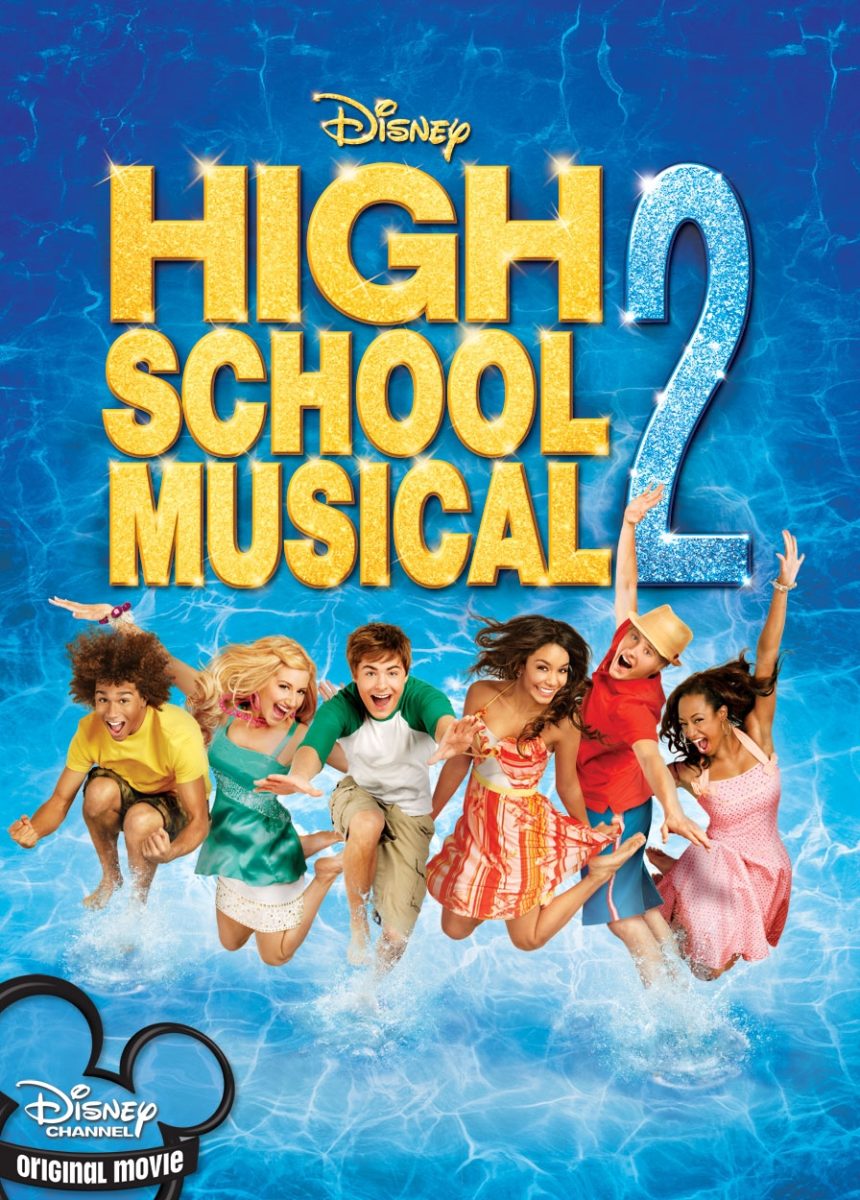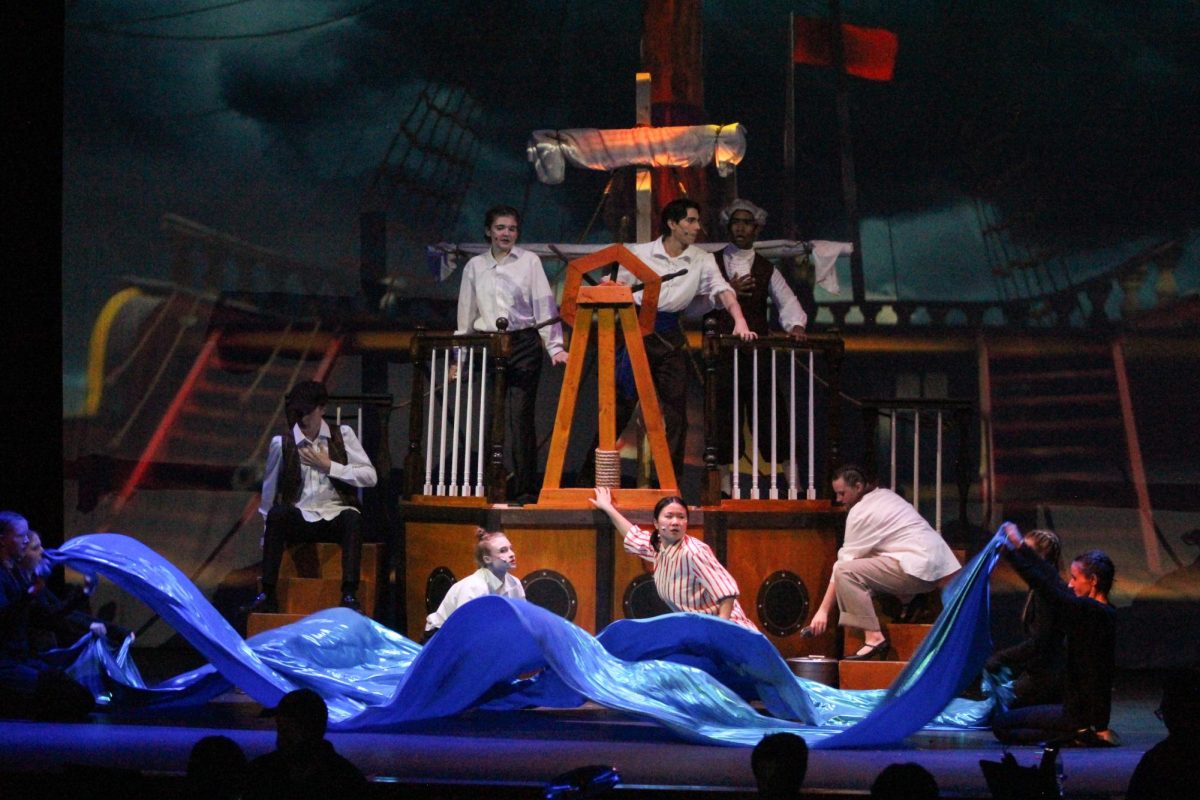‘25
“You hear that, boy? It’s the sound of snow falling.”
When Mockingjay: Part II, the last Hunger Games film, was released in 2015, gay marriage was only just legalized, Pretty Little Liars fans finally put a face to the name of “A,” and Han Solo and Chewbacca had finally come back to the big screens. Now, eight years later, The Hunger Games: The Ballad of Songbirds and Snakes invites fans back to the vicious world of Panem, the eccentric dressing of the Capitol, and the ritualistic killing that is the Hunger Games.
Based on Suzanne Collins’ 2020 prequel novel of the same name, The Ballad of Songbirds and Snakes rewinds the timeline of The Hunger Games some 60 years in an attempt to narrow in on the life of Coriolanus Snow.
Driven by its magnetic leads, Tom Blyth (Coriolanus Snow) and Rachel Zegler (Lucy Gray Baird), the prequel finds a way to be as contemplative and tender as the rest of the series.
In Collins’ original trilogy, Snow is the bloodthirsty, scheming president. He is a ghastly, blood-hacking martyr, the conspicuous villain; in Songbirds and Snakes, however, he is a child of the First Rebellion, a young boy during the first decade of the Hunger Games. Here, Coriolanus is not yet the malevolent man he is seen to become. He is a well-brought-up kid who aspires to follow in the footsteps of his magnate of a father, who died in the war following the uprising of the districts against the Capitol.
Yet, his family has fallen on hard times. As the 10th annual Hunger Games approaches, Snow, along with his fellow Capitol students, is paired with a tribute, a contestant from the districts. These children of the Capitol are selected to mentor said tributes, the Capitol’s attempt to spruce up viewership for the games. The mentor of the tribute to most effectively raise the ratings is to win a cash scholarship to the University. Having faked his wealth the entire time—a secret that would shun him from his colleagues—Snow desperately needs to win the prize.
Without other financial options, he jumps on the opportunity to mentor his tribute, Lucy Gray Baird. Quickly becoming aware of her talent, Snow discerns that the Capitol’s desire to resume the Hunger Games and Baird’s survival are analogous: if Snow can make the citizens fall for her, the people of the Capitol will watch. If they watch, the games continue. If the games continue, Snow comes out on top.
The themes, both social and political, of the original trilogy are far more explicit here. In Songbirds and Snakes, the Hunger Games are more of a cruel lab experiment, as opposed to a serial killing reality TV show, delving into a society that is not yet accustomed or desensitized to the gruesomeness of the games. There is no sequins or glitter, no unrequited love or unnecessary allure to distract the Capitol’s citizens from the truth. Without the guild, the carnage and debauchery of the games, along with the intentions of the Capitol, are far more discernible. It is a stark contrast to the initial trilogy. As opposed to the young-adult dystopian heroic, Songbirds and Snakes is more of an adult political thriller, overtly gore-ridden and harrowing.
Francis Lawrence, the director of the film, intricately outlines Snow’s journey from participant to proprietor of the Hunger Games. The sets, cast, and costumes excel in every sense of the word. Though different from its predecessors, Songbirds and Snakes stays true to the brazen ways of Panem. It is in Lawrence’s strive to humanize Snow that the film falls short.
From the beginning of Collins’ novel, there is no doubt of Coriolanus Snow’s narcissism and psychopathy. Lawrence’s adaptation, however, provides Snow with too much leeway. It attempts to make up for his actions with his so-called self-consciousness and traumatic past, accumulating sympathy for someone who does not deserve it. The pacing of the film, too, is shaky. Lawrence’s endeavor to garner support makes the film’s arrangement look ill-planned. She twists the story into knots trying to make Snow look redeemable, just to speedily swap the perspective in the third act, making him out to be the monster he always was.
Regardless of its faults, Songbirds and Snakes has numerous standout performances coming from Rachel Zegler, Viola Davis, and Hunter Schafer. Zegler, coming straight out of the 2021 West Side Story film, shows off her impressive singing range, bringing a clear-cut depth to her role, while Davis maintains a truly baleful presence in her character. Diverging from the plot’s typical violence, Schafer’s Tigris brings much-needed warmth to the film’s desolate atmosphere.
The Ballad of Songbirds and Snakes is a film of heavy contradiction—visually fit yet narratively weak, offering a new perspective on the beginnings of the Panem everyone knows, but not without tripping over its ambitious aims. The film, in the end, is not an exoneration of Snow but a deep look at power, the lengths to which people are willing to go to find it, and what it all means in a world no one understands as well as they thought.








